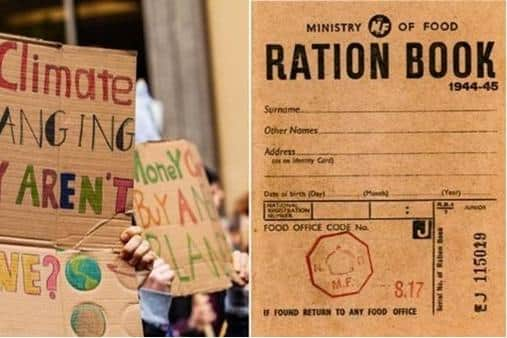Could rationing be used in war against climate change?
Researchers from the University of Leeds say lessons learned during wartime can be useful in the fight against climate change.
Records from the Second World War show that compulsory food rationing was more acceptable to the UK public than voluntary changes to diet when resources ran short.
Advertisement
Hide AdAdvertisement
Hide AdThe policy aimed to share goods and burdens more equally, regardless of wealth, which was an important part of its popularity and success.
Price controls were also applied on goods to keep important staples affordable for most people. The result was a drop in malnutrition during the war, despite the shortages.
The researchers say one of the main differences between wartime food rationing and the climate crisis is public perception.
The ability to buy thousands of garments, gadgets and goods at the click of a button can give the illusion that resources are available in abundance, they say, but the reality is starkly different.
Policymakers have considered schemes such as carbon taxes and personal carbon trading schemes as a way of reducing emissions, but the Leeds team say these favour the wealthy, who could buy the right to pollute if trading were allowed.


They argue that carbon rationing would instead allow people to receive an equitable portion of resources based on their needs, therefore sharing out the effort to protect the planet.
Such a scheme could also help some of the poorest households during the cost-of-living crisis.
Dr Nathan Wood, who is now a postdoctoral fellow at Utrecht University's Fair Energy Consortium, said: “The concept of rationing could help, not only in the mitigation of climate change but also in reference to a variety of other social and political issues – such as the current energy crisis.”
Advertisement
Hide AdAdvertisement
Hide AdHe added: “The cost of living crisis has shown what happens when scarcity drives up prices, with energy prices rising steeply and leaving vulnerable groups unable to pay their bills.
“Currently those living in energy poverty cannot use anywhere near their fair share of energy supply, whereas the richest in society are free to use as much energy as they can afford.”
Comments
Want to join the conversation? Please or to comment on this article.